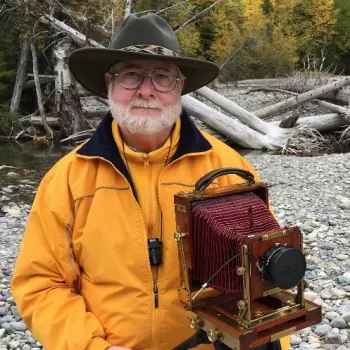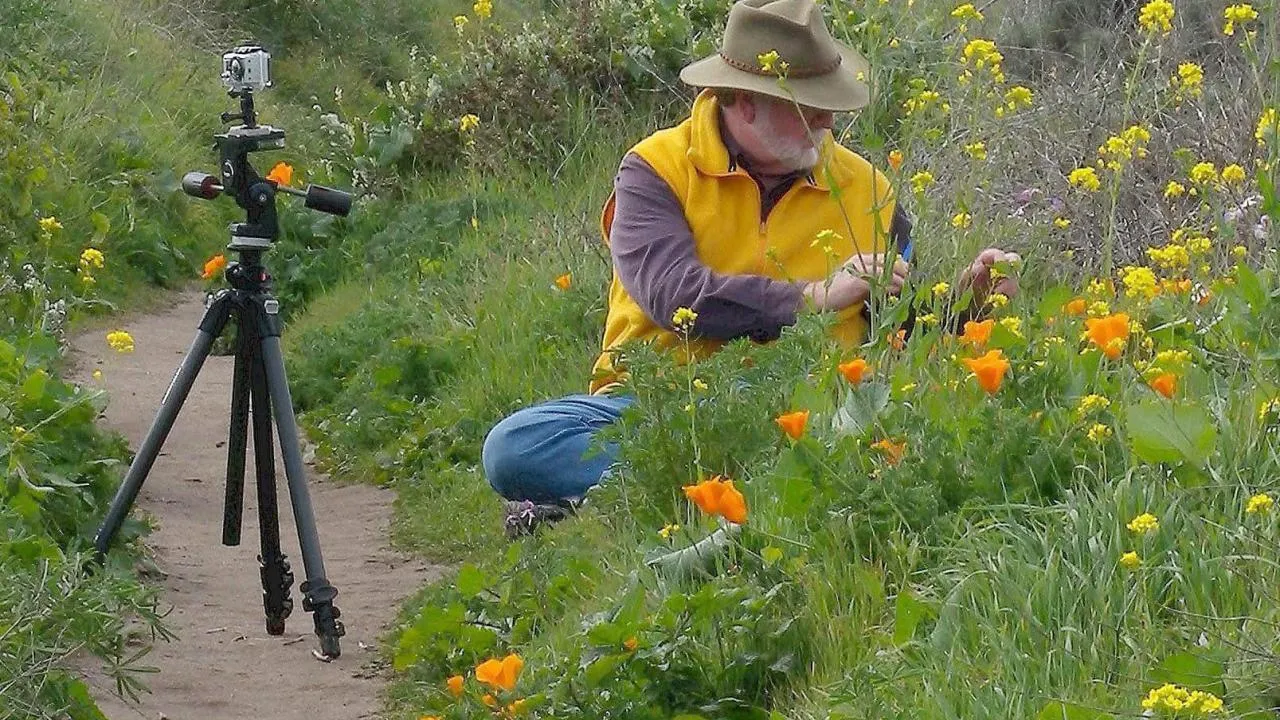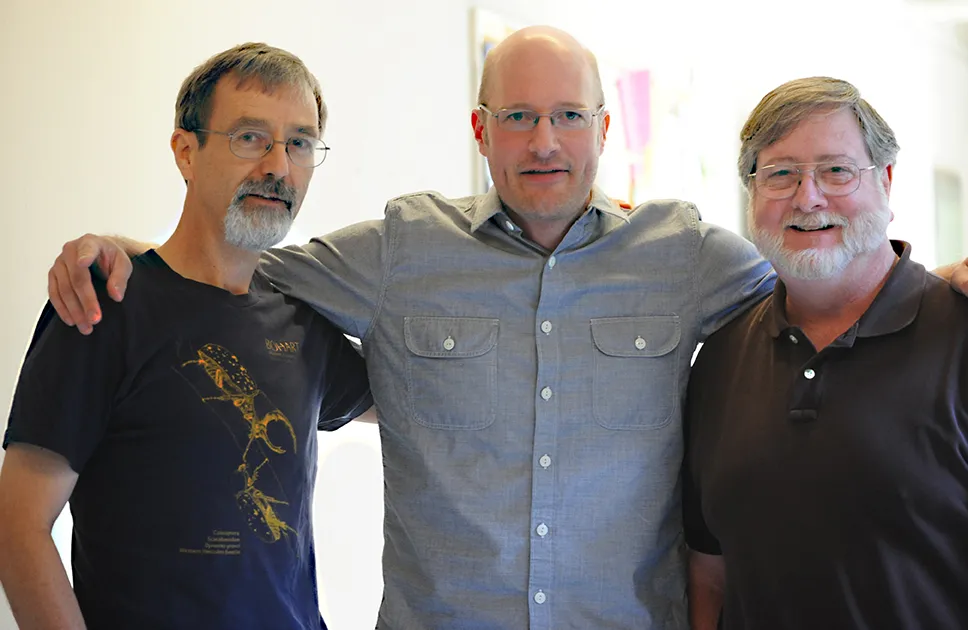By Tim Paine, Bruce Tabashnik (University of Arizona), Kent Daane, Houston Wilson, Mark Hoddle and Lynn LeBeck.

Marshall Wain Johnson, an emeritus UC Cooperative Extension specialist and respected member of the UC Riverside Department of Entomology, passed away on June 29, 2025, in Fresno.
His laboratory was based at the Kearney Agricultural Research and Extension Center in Parlier, where he conducted research on integrated pest management and biological control of orchard pests. During his 12 years in retirement from university service, Johnson honed his extraordinary skills in photography with many trips to Yosemite and Carmel, two of his favorite locations.

Johnson was born in Virginia in 1950 and maintained, throughout his life, a gentle touch of those roots in his voice and his interest in that region’s history. He attended North Carolina State University where he earned both his bachelor’s and master’s degrees in entomology. In 1974, he joined Earl Oatman’s biological control laboratory in the entomology department at UC Riverside and received his Ph.D. in entomology in 1979.
Like many early career academics, Johnson held appointments at a number of institutions, including as an assistant professor of entomology at Kansas State University (1979-1980) and a research entomologist at UC Riverside (1981-1983).
In 1983, he was appointed as assistant professor of entomology at the University of Hawai’i at Manoa, eventually rising to the rank of professor and department chair. Of particular note, he received the University of Hawai’i Regents' Medal for Excellence in Research (Junior Faculty) and was recognized as one of “Ninety Fabulous Faculty” over the 90-year history of the University of Hawaii at Manoa (1907-1997).
At the University of Hawai’i, Johnson’s integrated pest management research focused on reducing pesticide use on insect pests of vegetable crops, including leafminers, whiteflies, spider mites, thrips and diamondback moth. He investigated
population monitoring of pests and natural enemies, establishing economic thresholds, intercropping, conservation of natural enemies, and managing insecticide resistance. The research included fundamental studies of plant yield responses to insect feeding and determining non-target impacts of pesticides on crop physiology and yield.
In 2002, Johnson returned to the UC Riverside Department of Entomology as a UC Cooperative Extension specialist and Agricultural Experiment Station entomologist based in the Central Valley, where he contributed to international research on the olive fruit fly and regional efforts against the glassy-winged sharpshooter and ten-lined June beetle.
In this position, Johnson brought this same interdisciplinary approach to his research on reducing the impact of insect pests on tree crops. His efforts to obtain effective and sustainable control practices focused primarily on invasive species including olive fruit fly, glassy-winged sharpshooter, oriental fruit moth, olive psyllid and spotted wing Drosophila.
Johnson also developed a unique management program on the ten-lined June beetle, an insect native to the western U.S. that is a significant pest of perennial tree crops, including almonds, growing in sandy soils. The results of his innovative research program were shared with the academic, industrial and agricultural communities through an extensive and highly popular Extension education program.
The impact of Johnson’s research and outreach programs can be documented by various metrics. He published more than 200 papers that have a cumulative 11,000 citations. The list of awards he received is extraordinary and includes many that are the highest offered in his area of expertise. These include Honorary Lifetime Member of the Global International Organization for Biological Control, Distinguished Scientist of the Year Award from the International Organization for Biological Control, Award for Excellence in Research from the Western Association of Agricultural Experiment Station Directors, Elected Fellow of the American Association for the Advancement of Science, Elected Fellow of the Entomological Society of America, C.W. Woodworth Award from the Pacific Branch of the Entomological Society of America, and Entomological Society of America Recognition Award for Contributions to Agriculture.

Johnson was a model academic colleague. He was an outstanding member of the academic community dedicated not only to research and mentorship, but also to service. He received numerous well-deserved awards and took great joy in shepherding the award nomination process for the recognition of colleagues. He was an active participant in scientific societies and served in important leadership roles. For example, in addition to chairing numerous scientific society committees, Johnson was an editor for two scientific journals, President of the Hawaiian Entomological Society and a member of the Governing Board of the Entomological Society of America. Whether it can be properly classified as service or as altruism, he was chair of the Department of Entomology at the University of Hawai’i and, subsequently, a newly established Department of Plant and Environmental Protection Sciences (PEPS) that combined the disciplines of entomology, plant pathology, weed science, nematology and toxicology.
A list of accomplishments, as outstanding as it is, does not measure Johnson’s impact on the lives and careers of those around him. Johnson was a man of character. He listened and he mentored. He engaged, and he encouraged. His laugh was as infectious as it was uniquely his own. He had the curiosity and rigor of a scientist and the soul of an artist. More often than not, his research collaborations led to life-long friendships. For living a full and valued life, role models like him are uncommonly rare.
Johnson is survived by his wife Lynn LeBeck.
Read more from his UC Davis colleagues at https://entnem.ucdavis.edu/news/marshall-johnson-1950-2025.

